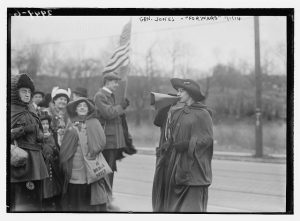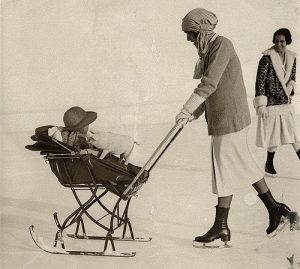Goals for 2017
 Here’s an oldie but not-baddie: the New Year’s Resolution worksheet I once-upon-a-time put together for residents at the 28-day crisis program where I used to work. It’s been posted here before, but…it’s a new year again, so here it is.
Here’s an oldie but not-baddie: the New Year’s Resolution worksheet I once-upon-a-time put together for residents at the 28-day crisis program where I used to work. It’s been posted here before, but…it’s a new year again, so here it is.
Sometimes resolving to take on new, better behaviors just sets you up for disappointment. There’s some wisdom in abstaining from the whole process. But, if you’re going to give resolutions a shot, the worksheet can be helpful in getting them structured. It asks, what are your goals for the coming year, what are behaviors would you like to change, what are attitudes do you hope to adjust. Then, once narrowed to resolutions, you’re prompted to break each item down into steps. “So you want to ____________; what’s the first action you have to take to get there?”
It was helpful for the residential program folks. It could help you too.
Either way, Happy New Year!
Anxious in Los Angeles
With all the uncertainty following the November election, anxiety is spiking. Worry and fear can show up for different people in vastly different ways. Here’s an article that sums up some of the possibilities. If you’ve been anxious lately, something here is likely look familiar. Also, up top in the article, some simple suggestions:
- Make it a priority to connect face-to-face with supportive people
- Move your body frequently—don’t sit for more than an hour
- Get the full amount of restful sleep that you require
- Learn about and practice relaxation techniques
May seem over simple–but these little steps can help a lot.
Therapy’s Digital Disconnect
 From The Ringer—Digital Natives Struggle with Traditional Therapy. How to get help with anxiety or depression from a therapist who has never used a dating app?
From The Ringer—Digital Natives Struggle with Traditional Therapy. How to get help with anxiety or depression from a therapist who has never used a dating app?
Post-Election Anxiety
Los Feliz is a deep blue neighborhood in a deep blue state. Right now, a lot of people are experiencing an unpleasant combination of lingering shock and continued anxiety. From How to Cope with Post-Election Stress (The Atlantic), come some suggestions. First, there’s basic self-care. Then:
At an individual level, people can check in on their families, friends, and coworkers, to see how they’re doing, and host gatherings or create opportunities for people to socialize and be together. They can donate or help organize or volunteer at charities, organizations, or religious groups that work in their cities and neighborhoods[…]
Ultimately, taking action is likely the biggest thing people can do to combat the anxiety and fear they may feel while waiting for Trump’s inauguration, and after. A trap that it’s easy to fall into is what psychologists call “counterfactual regret”—thinking of all the ways an outcome could have been prevented, how the world could be different if people had just done something different.
Can therapy help? Yes, it can. Call or write to get started.
Election Anxiety
 Experiencing a spike in anxiety connected with the election? You’re not alone.
Experiencing a spike in anxiety connected with the election? You’re not alone.
The American Psychological Association says that 52 percent of American adults are coping with high levels of stress brought on by the election, according to national Harris Poll survey data released last week. Therapists around the country said in interviews that patients are coming to appointments citing their fears, anger and anxiety about the election.
Both poll data and anecdotal reports show that the high levels of election anxiety are affecting both Republicans and Democrats equally.
Therapists nationwide on are on the case (including here in Los Feliz).
More Mindfulness
More help via mindfulness, this time for elementary school kids in Watts:
Mindfulness has been found beneficial for stress reduction, anxiety and depression, dietary challenges, addiction recovery, and many other conditions. Now it has found its way into a classroom where children as young as three are using its techniques to manage emotions and stay calm.
Using a strategy called Calm Classroom, Los Angles students, ranging from transitional kindergartners to fifth graders, are being guided by teachers three times during the school day through three-minute mindfulness exercises. The drills call on students to refocus their attention on deep breathing, relaxation, and body awareness.
Haven’t tried it? For some free, short, guided meditations, check out UCLA’S Mindful Awareness Research Center.
Why Bond?
Another day, another study saying that healthy attachments are good for you (especially if you’re a preschooler).
Research has shown that our children’s chances of future success are driven by a variety of factors, including those that are somewhat beyond our immediate control, such as genes and financial status. The new study, however, found that a caring and emotionally attentive parent is likely to be a solid, long-term game-changer.
Screen Time and Mental Health
Decreasing screen time maybe better for all: preschool moms, kids, brains, bodies. Or maybe not. Either way, try asking yourself the classic therapist question after a long stretch in front of a screen: “How did that make you feel?” If the answer is “not so great,” you’ve got a data point. Repeat, adjust, and maybe feel better.
Los Feliz Therapy
Since opening my Los Feliz office years ago, a lot more psychotherapists have started practices in the neighborhood and a lot more psychotherapy resources have become available. That includes good psychiatry, which used to require travel and traffic to get to. If you’re thinking about therapy, get in touch. If I don’t have time available, I’m happy to refer you someone else.
Some areas of focus:
Relationships/Family (Dating, Couples Therapy, Parenting, Co-Parenting, Coping with Divorce)
Stress-Related Chronic Pain and Illness
If you’re struggling with a crisis–or with the same stuff over and over–therapy can help.
Politics in Therapy
In case you missed it: Why Therapists Should Talk Politics (NYT):
There comes a time when people can’t take it anymore, when too much is being demanded of them. How much blame can people tolerate directing at themselves? When do they turn it outward?
My sense is that psychotherapists are playing a significant role in directing this blame inward. Unfortunately, many therapists, because they have been trained not to discuss political issues in the consulting room, are part of the problem, implicitly reinforcing false assumptions about personal responsibility, isolation and the social status quo.
If the patient describes a nearly unbearable work situation, the therapist will tend to focus on the nature of the patient’s response to the situation, implicitly treating the situation itself as unchangeable, a fact of life. But an untenable or unjust environment is not always just a fact of life, and therapists need to consider how to talk about that explicitly.

